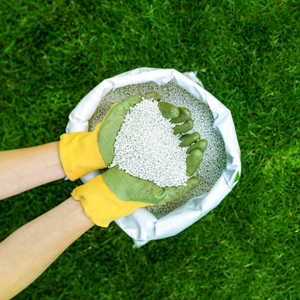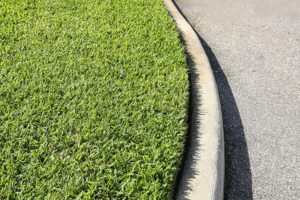Applying fertilizer in the springtime is something every homeowner knows to do. But what about winter? Do our Florida lawns need to be winterized like lawns in the northern regions do? Well, yes and no. Applying a winterizer is an important part of any lawn maintenance routine. However, our warm-season grass needs something a little different than what’s found in most winterizers.
Winterizing Your Florida Lawn
Here in Florida, our lawns are primarily made of warm-season grass varietals. This includes grasses like Bahiagrass, Bermudagrass, Buffalograss, St. Augustinegrass, Centipedegrass, Zoysiagrass, etc. Warm-season grasses are best suited for climates with mild winters and hot summer temperatures. They don’t mind our 90+ degree temperatures and can tolerate even higher temperatures. One reason is their ability to make do with little to no moisture during periods of drought. Warm-season grasses go dormant when the temperatures dip, and in late autumn, it’s highly advised to get them a winterizer treatment.
What Does Winterizer Do
Winterize helps your turfgrass store nutrients during the coldest part of the year. As your lawn begins to go dormant in a few months, it will turn its focus from growing above the surface to expanding its roots. However, there is a key difference between winterizing cool-season grasses, like Kentucky bluegrass, and warm-season grasses. Cool-season grasses need extra nitrogen, but our Florida lawns need extra potassium. In most fertilizers, potassium is called “potash.” You might see the chemical formula written as K₂0. When purchasing fertilizers at the store, look for a number that’s written like this: 4-4-4. This tells you the proportion of the macronutrients – nitrogen, phosphorous, and potassium, in that exact order. So in that example, the breakdown would be equal parts of all three nutrients. You should look for a winterizer that has the highest number of potassium or the last number. You want to have the first number, the nitrogen, as low as possible, or even at 0 if you can help it. One such example would be 4-3-20 or 0-0-18. In both cases, the largest percentage of minerals is potassium.
In case you’re not familiar, fertilizer is comprised of three macronutrients: nitrogen, phosphorous, and potassium. Nitrogen gives grass its signature green color, while potassium and phosphorous make grass tough and able to resist stresses like extreme weather conditions and drought. Your lawn needs all three minerals to thrive, but in autumn, warm-season grasses need extra potassium. If you choose the wrong fertilizer – for instance, one with extra nitrogen – it could over-stimulate the grass and encourage growth at a time when the grass should be storing nutrients and getting ready to go dormant for winter. Further, applying extra nitrogen in late summer is also known to encourage lawn diseases, such as Spring Dead Spot. While this may sound like a disease that pops up at the beginning of the year, it actually occurs in fall, and applying nitrogen can inadvertently make this problem much worse. Unfortunately, you won’t notice the damage to your lawn until the spring, when the disease fully reveals itself.
You should disperse about 1 pound of potassium-rich fertilizer for every 1,000 square feet of lawn. Make sure to thoroughly water your lawn after applying to prevent the fertilizer from burning your grass. This will help disperse the fertilizer evenly as well.
Benefits Of Winterizing Your Florida Lawn
Adding potassium to your lawn before winter has many benefits. These include disease suppression, stress relief from cold weather, and more. You might want to have a soil test performed to make sure you know how much potassium your lawn is craving. By winterizing as part of your lawn care, you’ll really reap the benefits next spring when your lawn kicks off its growing season.
Get Lawn Care Service Near Pensacola, Florida
If you don’t fancy the idea of shopping for the right fertilizer and spending your precious free time making sure it’s applied correctly, let us do it for you! The experts at Lawn Master have many years of experience readying our Florida lawns against cooler weather. Our multi-step lawn care program will ensure your warm-season turfgrass gets the nutrients it needs to last throughout the cold season and come back roaring in spring. Our lawn care service technicians will help you choose the ideal fertilizer for your yard. To learn more or schedule an appointment, give us a call at 850-476-1601, or you can drop us a message through our online form here. Don’t forget to check out our blog, where we post monthly articles that discuss many topics relating to lawn care, tree care, and pest control. You can also connect with us on Facebook, where we post photos of our work and the latest deals!